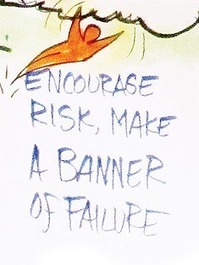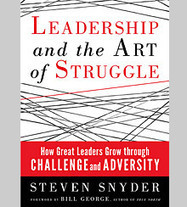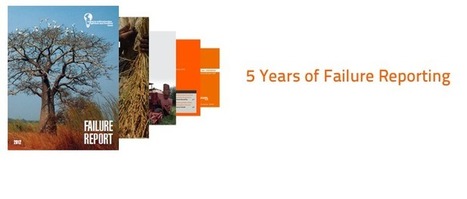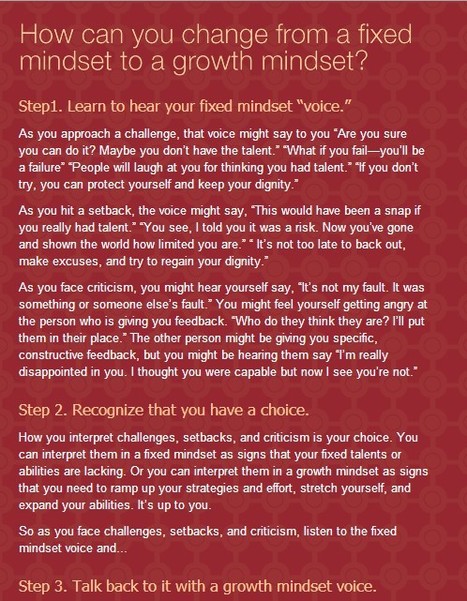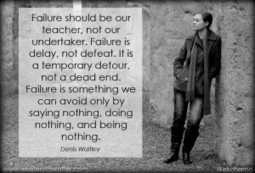Home - Failure-Lab
Get Started for FREE
Sign up with Facebook Sign up with X
I don't have a Facebook or a X account
 Your new post is loading... Your new post is loading...
 Your new post is loading... Your new post is loading...

Beth Kanter's comment,
December 13, 2013 8:49 AM
I was thinking about you yesterday - I'm taking a workshop with Lisa Heft on facilitating emergent experiences.

june holley's comment,
December 13, 2013 8:52 AM
I'm doing a research project on network leadership - have 30 minutes to talk - need your help!!! I'll email

Beth Kanter's comment,
December 13, 2013 9:03 AM
into next week, would love to catch up and hear what you're doing.

Beth Kanter's curator insight,
April 2, 2013 11:32 AM
Summarizes the research on growth vs fixed mindsets from Carol Dweck and others. "The real secret of success resides in people’s mind-set. He shows how a “fixed” mind-set that ascribes success to innate qualities is less resilient and adaptable than a “growth” mind-set that connects achievement to continuous learning and persistence." |

Rosemary Tyrrell, Ed.D.'s curator insight,
February 18, 2014 12:56 PM
Carol Dwek's Mindset is based on a lot of research she has done over the years. It has applications throughout higher education. 
Parent Cortical Mass's curator insight,
February 19, 2014 8:19 AM
nice set of links about Carol Dweck's Mindset Theory. Every parent needs to know what Carol Dweck discovered in her research.
Jaimee's curator insight,
March 5, 2014 10:09 AM
So one who wants to make a change must have a positive outlook on new situations or task that they are not used to?
This article is about how one can gain or become a part of the group that is a growth mind set. You gain success or become a better person by following these changes.

Dean J. Fusto's curator insight,
August 4, 2015 8:28 PM
Doubts kill more dreams that failure ever will.

Dean J. Fusto's curator insight,
August 4, 2015 8:28 PM
"Failure is a weird word. I don't see it as failure. I see it as a natural evolution of a solution to a problem." |






